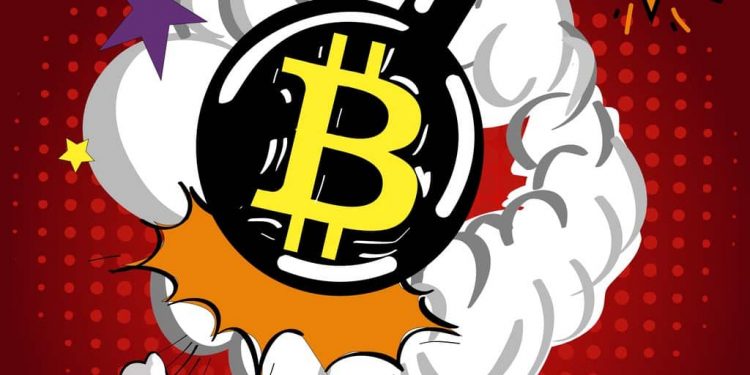As Bitcoin (BTC) is gaining traction each day, more people are beginning to join the cryptocurrency sector. When you take an entry into the market situation, so you ought to know what the positives and disadvantages of this are, the ones that could make you risk money and the ones that may make you make decent money. Several coins are circulating in the market now, such as Bitcoin Cash, Bitcoin, etc. The most common currency among the public is Bitcoin, but even among them, Ethereum is the preferred cryptocurrency of the majority. That’s because bitcoin’s price highly comes and goes, and due to its unpredictable existence, it offers plenty of chance to earn big money through the exchange.
1) More Liquidity of The Blockchain In A Specified Amount of Time:
Bitcoin is the most common cryptocurrency for a large margin and has much higher efficacy than its peers. This offers consumers the right to maintain any of the underlying worth of any lending platform when exchanging it to fiat money, such as the U.S. dollar or the Euro. Although most cryptocurrencies (e.g., Bitcoin) cannot be traded explicitly for fiat currency, they sometimes lose a significant amount in their value during such transactions.
2) Means of Payment, Progressively Becoming Common:
There are hundreds of retailers that welcome Bitcoin payments. Bitcoin can overtake physical retailers, although, with sites like Overstock.com embracing Bitcoin purchases, anyone can buy a physical object using Bitcoin. If you are adamant about reducing the exposure to paper money, QProfit System is there to increase Bitcoin’s mass adoption will probably be to your advantage.
3) Foreign Transfers Are Smoother Than Regular Ones:
Transmitting Bitcoin by linking that to overseas connections or transacting Bitcoins inside each country is no different. There aren’t any overseas responsibilities to deal with or red tape to not have to negotiate, which is sometimes the case for credit card charges, ATM cash deposits, and international financial transactions. As a foreign wire transfer, you may be paid large fees by the banks (up to 3 percent), and the money transfer agents transfer the money from region to region.
4) Typically, Processing Costs Are Smaller:
Bitcoin does not charge a fee to use and is an independently developed, strictly run, transferable, abundant, secure, global digital currency. With all the unique services that go through Bitcoin transfers, they are seldom, if ever, more expensive than 1% of the transaction’s worth. It is deemed even more significant relative to other digital payments, for instance, 2% to 3% commission.
5) Secrecy and Confidentiality:
When you use virtual coins such as cryptocurrency or swap the fiat currencies for a virtual currency for encryption secure and transacted electronically, your private consideration has precisely the same security as you hand over the money, cash the check, or operate a credit card. While your financial activities are hopefully secure against any but the most advanced intrusion attempts, they are associated with you – so private retailers and public agencies will watch how you invest and collect your monthly payment.
6) Functioning Without the Power of Government Officials and Creators:
Because Bitcoin is not generated or regulated by some state body, such as a banking system, it provides an alternate form of money that doesn’t have to interact with political power. The Bitcoin network was created independently of every government structure, making it difficult for regimes to freeze or capture Bitcoin units, whether it could be because of corruption proceedings or through political activities. As one example, the China government has frozen and would set its security forces to seize the Largest Bitcoin exchange assets. By exploiting the method, it enables the developers of cryptocurrencies to control the availability and devaluing of the currency, creating issues for other investors.
7) Built-in Scarcity:
Bitcoin’s “built-in scarcity” likely affects its long-term stability – the rivalry for value will be more extreme than conventional currencies. In comparison, both these coins (draught) of non-scarce supply would still be vying for a spot on the market A select few Bitcoins have a monetary worth that is equal to that of gold bullion regardless of the rarity of Bitcoins.
Non-growth assets like conventional (fiat) currencies regulated by national governments become non-scarce. Central banks (governments) will depend on their ability to create new units of money at will, and they do. For example, the Federal Reserve initiated a monetary stimulus policy that produced trillions of dollars during the wake of the highest loan global financial crisis. Even though economists are still uncomfortable with these policies’ long-term consequences, they always advocate these policies.
Follow Techdee for more informative articles.





